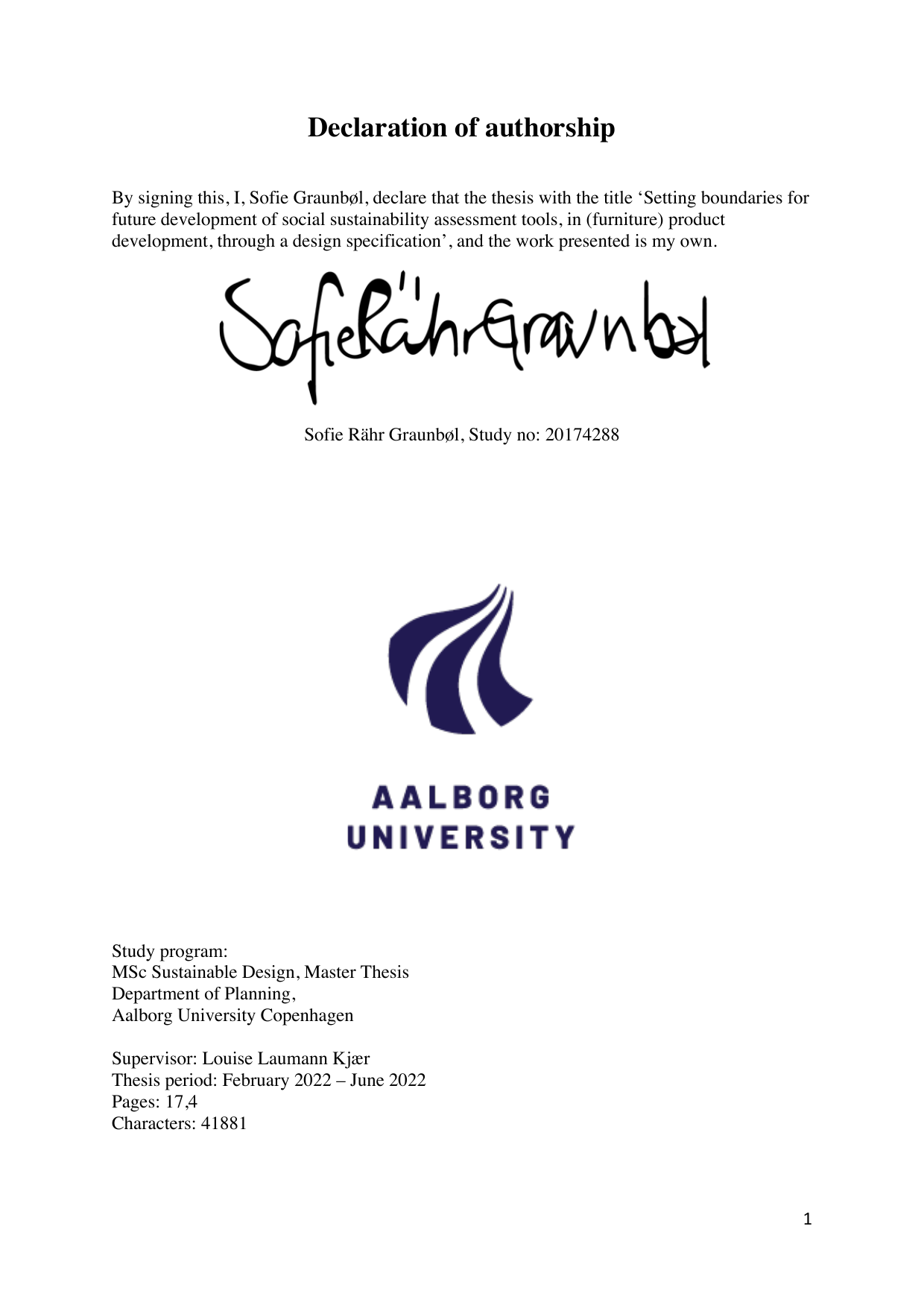
Setting boundaries for future development of social sustainability assessment tools, in (furniture) product development, through a design specification (appendices)
Translated title
Setting boundaries for future development of social sustainability assessment tools, in (furniture) product development, through a design specification
Author
Term
4. Term
Education
Publication year
2022
Submitted on
2022-06-02
Pages
26
Abstract
This article focuses on identifying challenges on social life cycle assessment tools, based on a case study on the Danish design furniture company, SAYSHWO. The S-LCA methodology is based on LCA and was first presented in 2009 by the United Nations Programme Guidelines for social life cycle assessment of products and organizations [1]. These guidelines were supposed to act as the framework for doing assessments on potential impacts of a product but instead created barriers for the companies trying to use it. Several important aspects of the S-LCA have been overlooked and the interpretations become too unrealistic and based on assumptions. The research contributes to the social sustainability field by 1) identifying social assessment tools to use in a design process, which can enlighten decisionmakers and researcher looking for a tool to use, looking from a life cycle view, 2) create a common definition of social sustainability in design, and 3) sets the boundaries for creating new assessment tools by introducing a design solution that can guide the development process of such tools.
This article focuses on identifying challenges on social life cycle assessment tools, based on a case study on the Danish design furniture company, SAYSHWO. The S-LCA methodology is based on LCA and was first presented in 2009 by the United Nations Programme Guidelines for social life cycle assessment of products and organizations [1]. These guidelines were supposed to act as the framework for doing assessments on potential impacts of a product but instead created barriers for the companies trying to use it. Several important aspects of the S-LCA have been overlooked and the interpretations become too unrealistic and based on assumptions. The research contributes to the social sustainability field by 1) identifying social assessment tools to use in a design process, which can enlighten decisionmakers and researcher looking for a tool to use, looking from a life cycle view, 2) create a common definition of social sustainability in design, and 3) sets the boundaries for creating new assessment tools by introducing a design solution that can guide the development process of such tools.
Keywords
Documents
